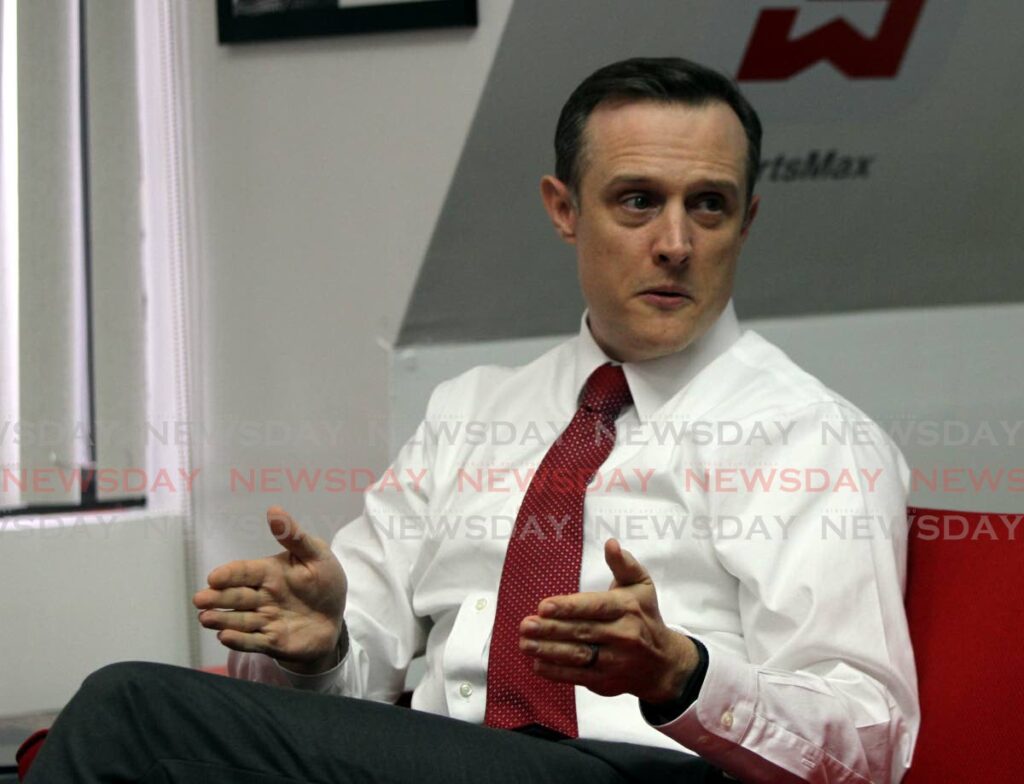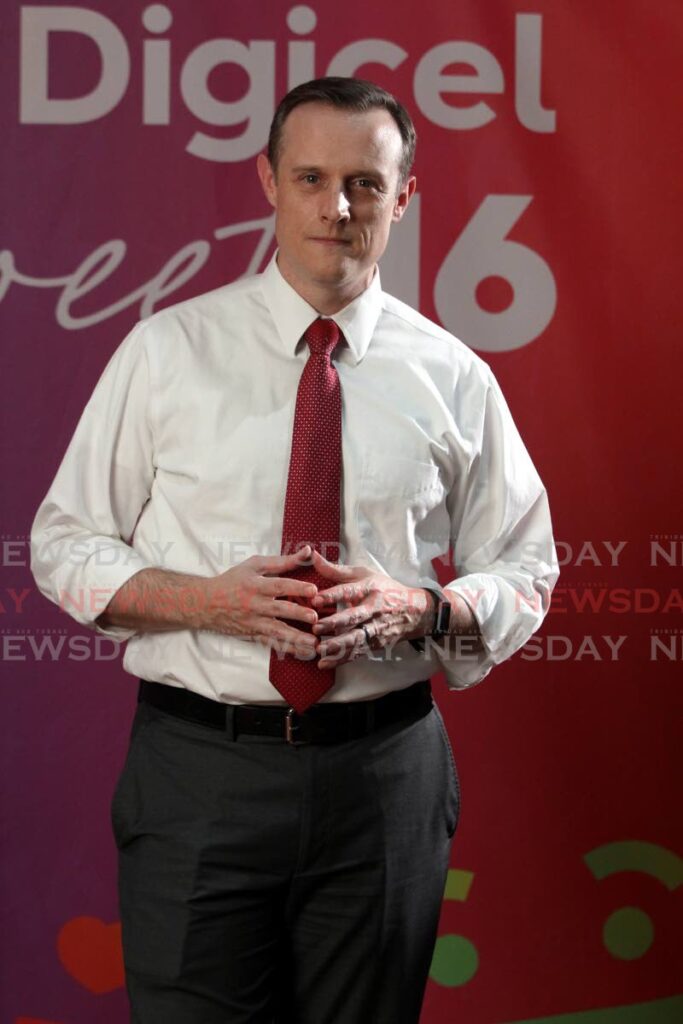Digicel CEO: Foreign content producers must help offset digital costs

Chances are you are scrolling your favourite app on your mobile device, tablet or laptop absorbing gigabytes of foreign content at little to no cost.
That content shared on social media sites, search engines and entertainment apps such as Facebook, Instagram, Google, WhatsApp, Spotify, and Netflix among others is generating millions in advertising and subscription revenue for the overseas developers.
None of it is contributing to helping rural communities access better internet speeds or improve digital online services.
Local internet service providers, like Digicel, want its regulator, the Telecommunications Authority of TT (TATT), to be more aggressive in getting the foreign digital content producers to contribute to what is known as a Universal Service and Access Fund (USAF) which can help off-set the costs of bridging the digital divide.
According to an October 2021 report of the Broadband Commission for Sustainable Development closing the connectivity gap for just over half of the world's population needs accelerated investment in the USAF to ensure those people do not end up with a lesser quality of experience than is available across the developed world.
The report said the existing funding models and distribution are insufficient where only nationally licensed operators to contribute to the fund and there was a need to expand the financing and investment models, including broadening the base of contributors.
On April 7, Digicel CEO Abraham Smith shared his thoughts on the issue among others as the company celebrated its 16th anniversary as being the first mobile service provider to bring competition against TSTT in 2006.
The evolution of the company has transformed over the last decade becoming a major player in the provision of digital content with an emphasis on local content through a suite of apps, such as D'Music and PlayGo.
Smith, who has been at the help of the pan-Caribbean company with Irish roots for just over three years, is passionate when he speaks about a level playing field and bringing consistent quality service.
He said concession holders, like Digicel, are building networks "for others to actually make money off of and when they are outside of the country I kind of take exception to the fact that they are able to do that without taxation, without contributions, those types of things."
Digicel, he said, has spent millions in laying the infrastructure of a fibre optic network which it intends to expand to Tobago, Guyana and Suriname in the next two years and has seen a dramatic uptick in internet usage which is not billed by volume but rather time.
Smith says the company experienced growing pains over the last 16 years as it emerged as a formidable digital content competitor in TT but the journey was not without battle scars.
Digicel has had to initiate costly court legal battles on occasions against TSTT, which operates bmobile, on issues such as reciprocity of interconnectivity charges, number portability which allows customers to change service providers without having to change their mobile number, and other claims of breaches of the Protection of Unfair Competition Act.
While the issue of number portability has been referred to mediation before TATT, no dispute resolution has commenced.
Smith says the relationship has improved with TSTT "from the immature siblings' squabbles to something like tower sharing, something that we do today."
"Absolutely, there was some bad behaviour on the porting, It seems those practices have largely stopped. Porting is happening within the rules and regulations, it is still slow but it's not out of the line today.

"I think the regulator is trying to make sure the rules of the road are fair and hold us all to account but we do expect when folks go outside the line as we saw about a year and a half ago on porting, I thought it was important enough to really push."
Smith believes TATT needs to be more empowered to resolve disputes without going to court and should "let competition run a bit more."
Even though TSTT is currently in the throes of a major corporate restructuring with the possible retrenchment of hundreds of employees, Smith said it was important to have a competitor.
"I like having a competitor as long as they are playing by the rules and you've got a referee that is empowered to make a call."
Like other local network providers, Digicel is getting major competition from international players such as Netflix, Spotify, WhatsApp, Facebook among others and wants TATT to be "much more aggressive" so foreign digital content providers can contribute to the USAF.
Smith said a discussion on how to use the funds in the USAF is "actively happening" between operators, TATT and the Ministry of Digital Transformation to help bridge the digital divide.
He is confident the millions invested in its fibre optic network and the company's pan-Caribbean experience will help to grow both business and government solutions as more services go online.
So where does Digicel see itself in the next decade?
Apart from digital entertainment services, the company is focussing on enabling entrepreneurs to develop digital products which can be exported as part of the digital economy aspirations of the country.
Its partnership with Filmco, calypsonians, and newspaper publishers is all aimed at boosting local content for export and the diaspora.
On the technology front, the creation of digital identities of people, digital payments and data centres are among its goals as well as continuing to build the digital foundation with network resilience to support the digital economy.

Comments
"Digicel CEO: Foreign content producers must help offset digital costs"